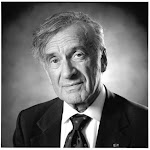Winter had arrived in Buna and the harshness of the cold winter nights is described as "almost unbearable." The winter clothing that the inmates were given were striped shirts being a hair thicker and heavier than their previous shirts. The veteran inmates only taunted the newcomers even more, saying, "Now you'll really get a taste of camp!" The unfortunate aspect was that the veterans had lived in various concentration camps long enough that they knew what all the unimaginable, horrible, unthinkable things were like, and yet they were only focused on themselves. They certainly were not interested in giving advise on how to best survive to the others.
http://en.wikipedia.org/wiki/Birkenau_concentration_camp
This link leads to Wikipedia's description of the German concentration camp Birkenau, in which Elie was staying in at this time, in the Buna work camp sector. Some of the living conditions and day to day descriptions are included so it is a good link for outside information on the conditions which Elie Wiesel and his fellow inmates would have been experiencing.
Elie had been moved to a new block, the construction Kommando, where the work was especially grueling and exhausting. The work schedule during the winter months did not even hint at a decrease in pace so the inmates just went on as usual. The worst part about the cold was the feeling that the stones would stick to your hands as you touched them and then not come off, but like all the other hardships suffered in the camp, the construction laborers just got used to it.
When January came, Elie began to have trouble with his right foot. The cold was causing it to swell so he went and checked in to the infirmary. The Jewish doctor there, also a prisoner, told Elie frankly that "[w]e have to operate! If we wait, the toes and perhaps the leg will have to be amputated." This news frightened the young Elie, as it would any young child who is afraid of the knife. I remember before my surgery to have my tonsils removed, all I could think about was the fact that I would be asleep while a sharp knife was inside of me. I think Elie's fear was certainly justifiable and by no means childish or cowardly. While staying in the infirmary, Elie was put in a bed with white sheets, oddly reminding him that people actually slept in sheets. The rations of bread and soup were a little heartier too, making the stay less of a trial. Elie had really begun to enjoy his time in the infirmary, expecting to stay for two weeks, until his neighbor told him about the selections. These selections in the infirmary came more often than outside, leaving fewer and fewer behind. His neighbor's advice: "[L]eave the infirmary before the next selection!"
Elie's expected stay in the infirmary was cut short for another reason though, other than selection. Two days after his operation, rumors sped through the camp about the battlefront suddenly drawing nearer. Hope began to circulate about the eminent Russian liberation. This was of course the story until news came back with the Blockälteste about the German's new plan: Evacuation. The camp would be evacuated the following evening, block by block, with the sick remaining behind in the infirmary. The probable fate of those who stayed behind in the infirmary was a swift execution by the SS, but Elie wasn't worried about death at the time, he only worried about being separated from his father. The good news was that he and his father could decide for themselves. The kind Jewish doctor offered to have it arranged so that Elie's father could also remain in the infirmary, but this could mean death for both of them. Elie's immediate thought was "Let's be evacuated with the others," but his father was not listening to his son. He only stared at Elie's foot, finally agreeing to leave, but only after he had said, "Let's hope we won't regret it, Eliezer."
This next fact of the story that Elie narrates has such irony that I had to read it twice to make sure I had comprehended it correctly. At this point, Elie tells the read the reader that he learned after the war that those who had remained in the infirmary were liberated by Russian soldiers two days later. This alternate fate which Elie could have lived was so drastically different, that had he been liberated with his father two days later, I don't think he would have written this book. The next few months are ones that certainly changed him more than any other amount of time could. And to leave the war's path with his father still alive was something that Elie could have only dreamed of at this point. I struggle to comprehend the magnitude of difference between the road which Elie and his father decided to take and the one which they could have taken. This incident is a perfect example of the lasting, permanent effect of the decisions we make in our lives and how we cannot take them back.
Subscribe to:
Post Comments (Atom)



.jpg)

No comments:
Post a Comment